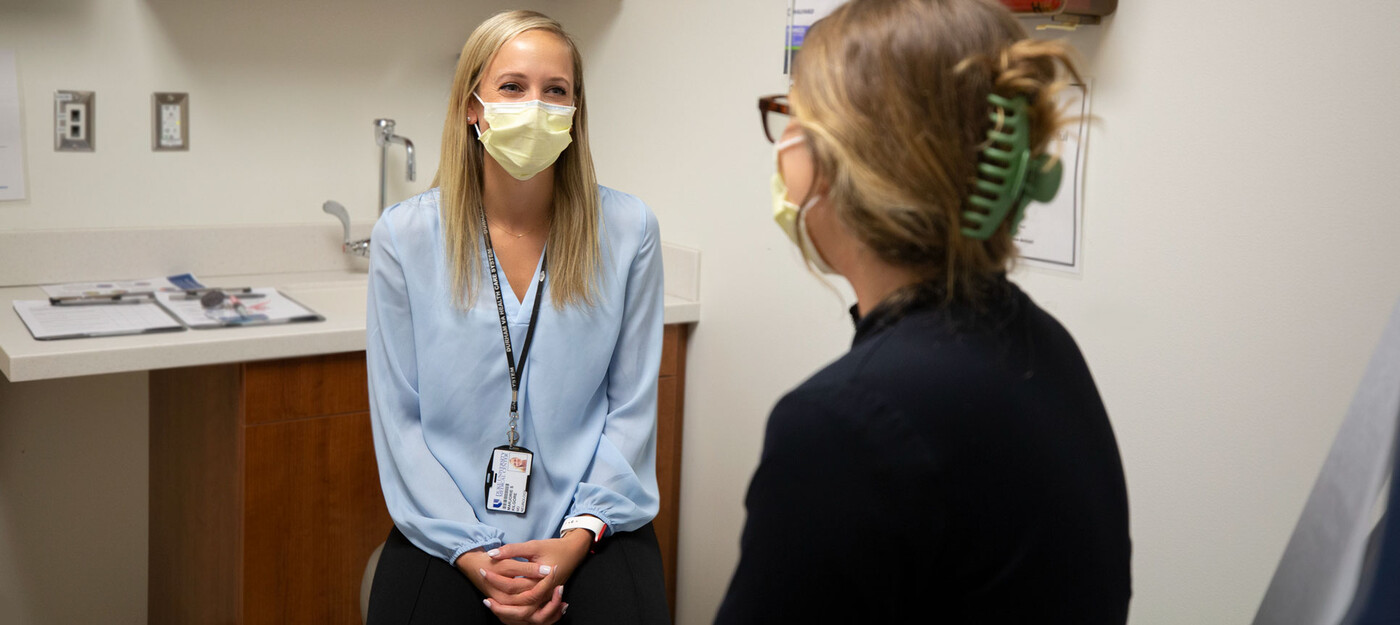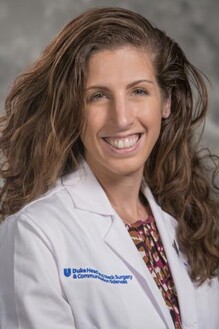Do I Need a Sleep Specialist?
Better Sleep Leads to Better Health

Duke sleep specialist Marjorie Kilgore, MD, helps treat sleep issues and sleep disorders.
If you aren’t getting enough quality sleep, a sleep specialist can help improve your sleep and wellbeing. Sleep specialists are experts at diagnosing and treating sleep issues and sleep disorders. Here, Duke sleep specialist Marjorie Soltis, MD, and Duke sleep surgeon Emily Commesso, MD, share when and why you should seek care for troubled sleep.
What Is a Sleep Specialist?
A sleep specialist specializes in diagnosing and treating sleep disorders like sleep apnea, insomnia, narcolepsy, restless leg syndrome, and others. Sleep specialists are most often neurologists, pulmonologists, or psychiatrists who have completed additional training in sleep medicine.
What Is a Sleep Surgeon?
Sleep surgeons are another type of sleep specialists. Sleep surgeons are usually otolaryngologists (ear, nose, and throat doctors) or oral and maxillofacial surgeons (specialized dental surgeons). They perform sleep apnea surgery and other procedures to help people with obstructive sleep apnea and snoring that has not improved with other treatments. "Choosing the right surgery is key," Dr. Commesso said. "We consider symptoms, sleep history, and anatomy to make an individualized treatment plan that is right for you.”
When Should I See a Sleep Specialist?
According to Dr. Soltis, you should see a sleep specialist when sleep problems persist got more than about three months and are affecting your daily life. Maybe you’re snoring a lot, waking up in the middle of the night, or struggling to stay awake when you’re at work or while driving. You may feel exhausted most days or have trouble falling asleep at night. These are signs of a potential sleep problem, says Soltis.
“A healthy sleep life is incredibly important,” she said. Poor sleep can cause changes in mood, energy levels, hormones, and weight, and can be associated with medical problems like breathing conditions, depression, neurodegenerative disorders like Parkinson’s, and heart problems. In fact, the American Heart Association just added sleep to its list of factors that measure cardiovascular health. “Sleep is one of the biggest contributors to your overall mental and physical health.”
What Should I Expect During My First Visit with a Sleep Specialist?
During your initial visit, your sleep specialist will review your medical history, perform a physical exam, and ask questions about your sleep. It’s important for your doctor to learn when your sleep problem started and how it has progressed over time.
Dr. Soltis recommends bringing a bed partner with you, if possible. “They can comment on things that you do in your sleep that you may not be aware of,” she said. She also suggests tracking your sleep for a few weeks before your appointment to help identify patterns and triggers.
What Questions Should I Ask?
Before the appointment ends, be prepared to ask questions to ensure you and your doctor are on the same page about next steps:
- What are the testing options? An in-lab sleep study may be a better fit for you than an at-home sleep study. Share any potential barriers to testing or treatment with your sleep specialist. They can help make the process as simple and efficient as possible.
- What else could this be? Sleep medicine is complex. Ask your sleep specialist whether it’s possible that another diagnosis might fit your signs and symptoms.
- Have we discussed all possible treatments? You are the most important part of your sleep care team. Sometimes lifestyle changes can improve or cure certain sleep disorders, so ask about this before committing to a medication regimen.
Don’t Settle for Bad Sleep
Dr. Soltis said her patients are often surprised at how much better they feel after seeking treatment for a sleep disorder. “Don’t wait. Seeing a sleep specialist to learn how sleep is affecting you and what your options are could be life changing.”




